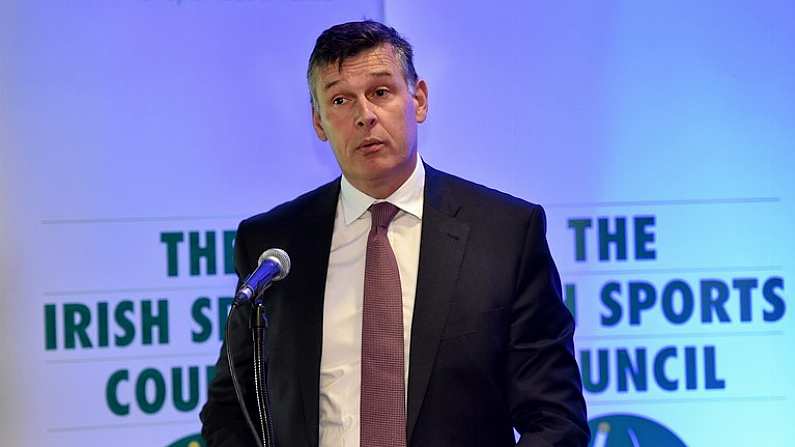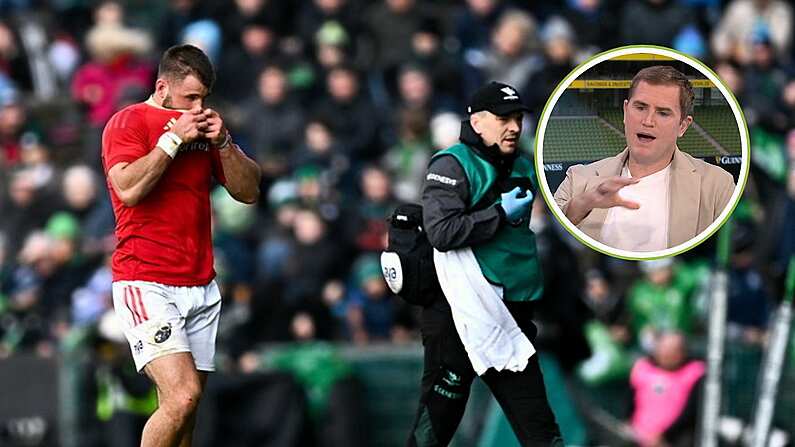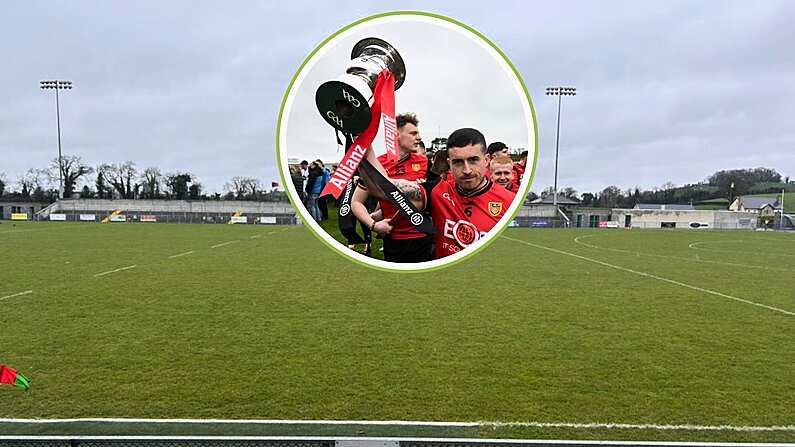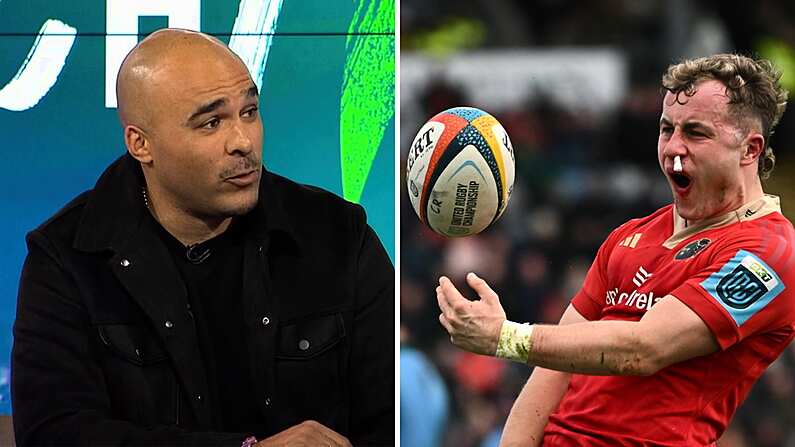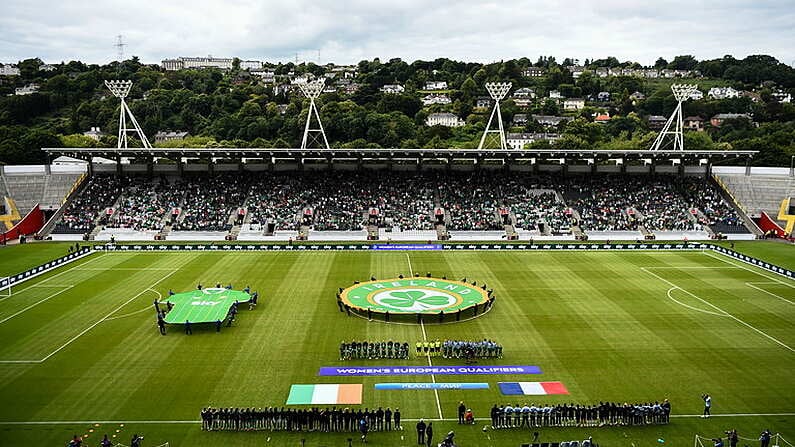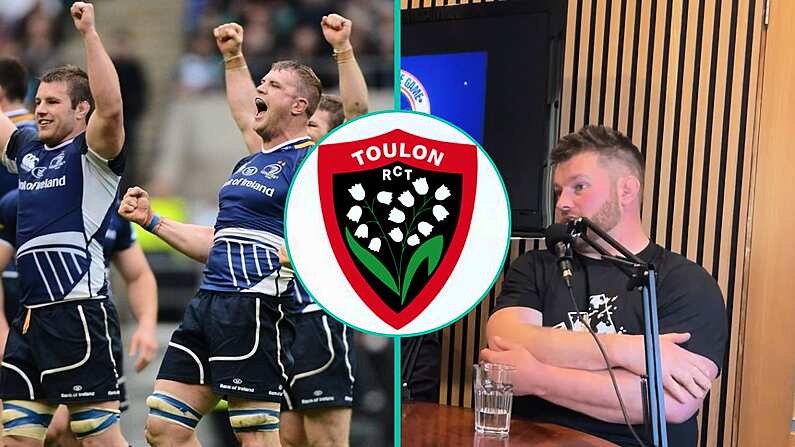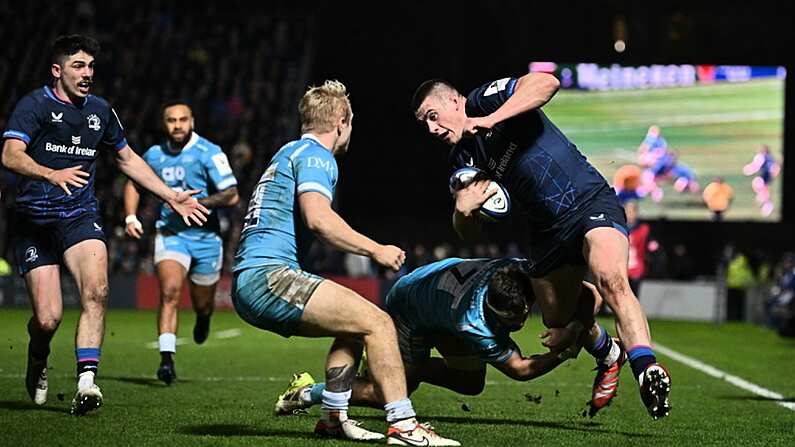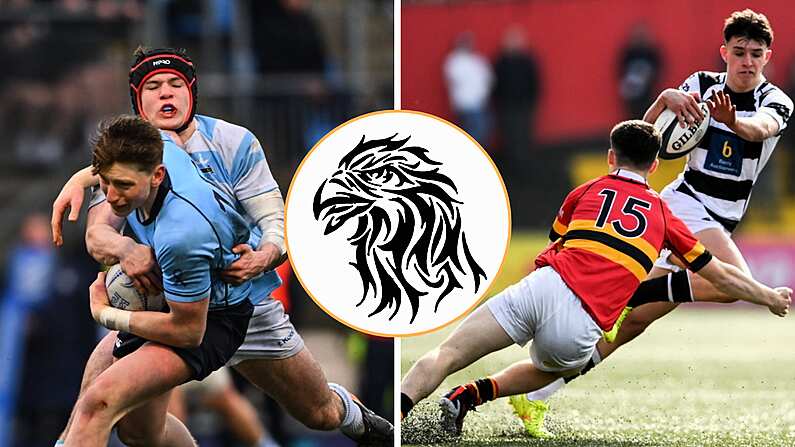Yesterday, Aviva announced that they are renewing the naming rights on Lansdowne Road until 2025, which gave IRFU CEO Phillip Browne reason to speak to the media. He came prepared for the likely topic of conversation: his press officer arrived in tow with copies of the IRFU's anti-doping report in 2016/17, one for everyone in the audience.
The very second line of the report could not be any clearer.
The IRFU continues to invest in education and awareness campaigns around the dangers of doping in sport. We operate a zero-tolerance policy to cheating within rugby and must remain vigilant in our efforts to safeguard our players and educate them about the importance of clean sport.
Why, then, did Munster (and by extension the IRFU) agree to sign Gerbrandt Grobler, the South African second-row banned for two years after testing positive for the anabolic steroid drostanolone while he was still with Western Province? While his signing has done wonders for the first line in that introduction - rugby fans have never been more aware of doping in sport - surely it undermines a supposed zero-tolerance policy?
That was the first question asked of Phillip Browne (well second, if you include the opening comments on his delight at renewing a deal with Aviva), in his seven-minute briefing with members of the online media. His lengthy answer was a paragon in the art of the filibuster.
He didn't address Grobler at all in response to the question, instead pointing out that "the Irish Rugby environment is probably the most stringent environment in terms of drug testing", citing a close relationship with Sport Ireland (70% of their "user-pays tests" were funded by rugby, which are tests conducted in addition to the National Testing Programme); the five IRFU employees involved in the SPIRIT programme; the level of education on this topic toward players of all ages, meaning that "our players are educated of what’s required from them, and are fully aware of the dangers and the risks to them and their careers in relation to abuse of substances"; and what Browne says is the IRFU's "pretty good record in terms of clear testing and lack of positives".
Fine. Browne evidently wanted to put on the record the IRFU's commitment to anti-doping up to now, and there's no problem with that.
What is a problem was his next answer, where he addressed the Grobler issue specifically.
The situation with Grobler is that there was knowledge of his background, the IRFU and Munster operate together in terms of bringing in overseas players.
With Grobler, he was a young man in a very different rugby environment. He made a poor decision, and he has been punished for that poor decision. Having said that, everyone deserves a chance.
Can any of you look yourselves in the mirror and say you’ve never made a poor decision in your life? Probably not. We’re all guilty of making poor decisions.
Everyone makes mistakes and poor decisions, but based on the evidence that is publicly available, Grobler didn't make a mistake. He cheated. There has been no clarification that he accidentally ingested this substance, or did so without full knowledge of the substance he was taking.
Why can't the IRFU chief executive, a man who claims to be presiding over a zero-tolerance approach to doping in rugby, just say Grobler cheated? That's surely how he sees the taking of banned substances if his organisation's is a zero-tolerance approach? Doing so doesn't necessarily undermine the notion he deserves a second chance.
As for the comment that Grobler took the banned substance in a "different rugby environment", specifically South Africa in this case. Numerous reports in the Irish media over the weekend accentuated a different culture to doping in sport in South Africa, writing that it's less frowned-upon than it is over here. (Browne cited the above figures and Irish Rugby's close monitoring by Sport Ireland as proof that we are different over here).
The fact that Grobler was banned by South African officials certainly challenges this theory, but nonetheless, if Irish Rugby have a problem with the "different rugby environment" in South Africa, why do they regularly recruit players from that exact environment? Will they reconsider this from now on?
The idea that Grobler deserves a second chance is a less clear-cut issue, but certainly, if Irish Rugby has a zero-tolerance approach to doping, why give Grobler the platform to reform here? And were they to make an argument for doing so, and if he has proved his remorse, why not be more open about it? Why not have Grobler in schools, academies, and clubs to buttress the education programmes of which the IRFU are so proud? And if this is the plan, it's yet to be communicated to anyone.
Later in the briefing, Browne admitted that the IRFU would reconsider their approach in these circumstances in the future.
I think, with TwentyTwenty vision, when you look at it, would we consider how we deal with a similar situation in the future? The answer is probably yes.
That's entirely fair, but they have yet to deal with the current situation. They have yet to satisfyingly explain why the decision was made to sign Grobler (given that all parties were aware of his past transgression), and how it stands up against the IRFU's zero-tolerance attitude and the values that Munster and Irish rugby purport to stand for?
Browne's comments are merely the latest failure of Irish Rugby's failure to adequately address this issue. Munster themselves have been silent (they have yet to respond to Balls' request for comment), unfairly tossing Peter O'Mahony, Conor Murray, and Johann Van Grann before the media yesterday to defend their player in spite of their having no role in his signature.
Few sports fetishise and rely upon leadership quite like rugby does, but yesterday the man at the head of the sport in Ireland failed to show any.
Nobody has given a satisfactory answer as to how the signing of Grobler squares with a zero-tolerance approach to doping and the values the game in Ireland sets for itself.
And judging by yesterday, we could be a while waiting for an answer.
When asked if there will be any "convicted dopers" brought into Irish rugby in the future, or if these issues will be treated with a policy or be judged on a case-by-case basis, Browne answered immediately.
"That's a nonsense question".
He later admitted that the IRFU would review their policy.

